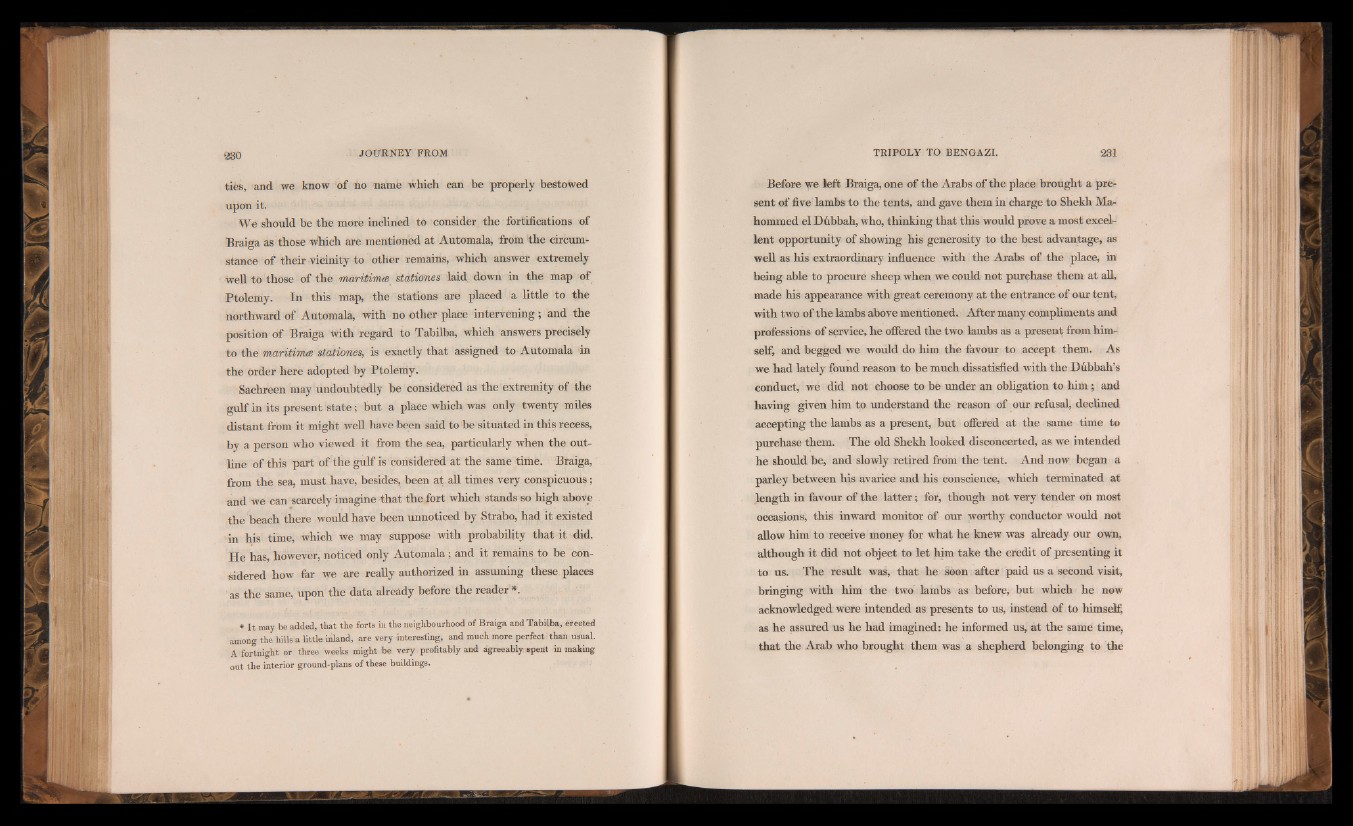
ties, and we know of no name which can be properly bestowed
upon it.
We should be the more inclined to consider the fortifications of
Braiga as those Which are mentioned at Automala, from the circumstance
of their vicinity to other remains, which answer extremely
well to those of the maritimis stationes laid, down in the map of
Ptolemy. In this map, the stations are placed a little to the
northward of Automala, with no other place intervening ; and the
position of Braiga with regard to Tabilba, which answers precisely
to the maritimte stationes, is exactly that assigned to Automala in
the order here adopted by Ptolemy.
Sachreen may undoubtedly be considered as the extremity of the
gulf in its present state ; but a place which was only twenty miles
distant from it might well have been said to be situated in this recess,
by a person who viewed it from the sea, particularly when the outline
of this part of the gulf is considered at the same time. Braiga,
from the sea, must have, besides, been at all times very conspicuous ;
and we can scarcely imagine that the fort which stands so high above
thè beach there would have been unnoticed by Strabo, had it existed
in his time, which we may suppose with probability that it did.
He has, however, noticed only Automala ; and it remains to be considered
how far we are really authorized in assuming these places
as the same, upon the data already before the reader *.
* I t may be added, that the forts in the neighbourhood of Braiga and Tabilba, ereeted
among the hills a little inland, are very interesting, and much more perfect: than usual.
A fortnight or three weeks might be very profitably and agreeably spent in making
out the interior ground-plans of these buildings.
Before we left Braiga, one of the Arabs of the place brought a prer
sent of five lambs to the tents, and gave them in charge to Shekh Mar
hommed el Dfibbah, who, thinking that this would prove a most excellent
opportunity of showing his generosity to the best advantage, as
well as his extraordinary influence with the Arabs of the plaGe, in
heing able to procure sheep when we could not purchase them at all,
made his appearance with great ceremony at the entrance of our tent,
with two of the lambs above mentioned. After many compliments and
professions of service, he offered the two lambs as a present from himself,
and begged we would do him the favour to accept them. As
we had lately found reason to be much dissatisfied with the ltubbah’s
conduct, we did not choose to be under an obligation to him ; and
having given him to understand the reason of our refusal, declined
accepting the lambs as a present, but offered at the same time to
purchase them. The old Shekh looked disconcerted, as we intended
he should be, and slowly retired from the tent. And now began a
parley between his avarice and his conscience, which terminated at
length in favour of the latter; for, though not very tender oil most
occasions, this inward monitor of our worthy conductor would not
allow him to receive money for what he knew was already our own,
although it did not object to let him take the credit of presenting it
to us. The result was, that he soon after paid us a second visit,
bringing with him the two lambs as before, but which he now
acknowledged were intended as presents to us, instead of to himself
as he assured us he had imagined: he informed us, at the same time,
that the Arab who brought them was a shepherd belonging to the